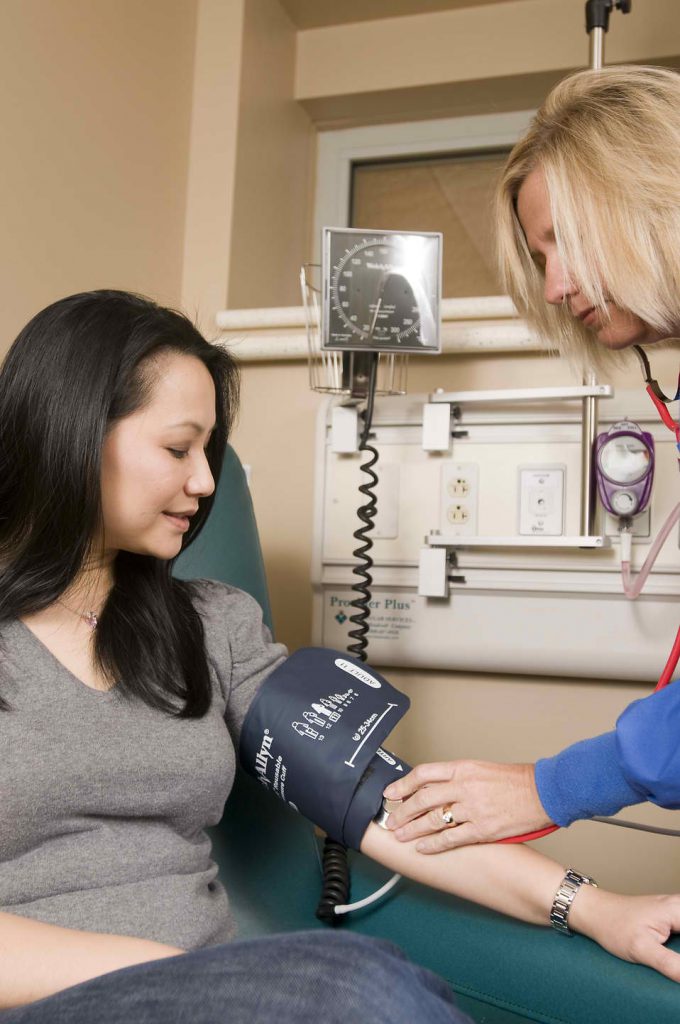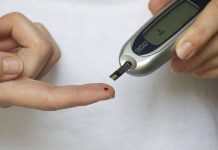“Dizziness is not a disease on its own; rather it is a symptom of something else that is happening in the body.”
Dizziness during menopause is a normal and common occurrence that typically is not a sign of a more severe medical issues. However, unexplained or regular, severe dizziness should be discussed with a doctor.
Dizziness is not a disease on its own; rather it is a symptom of something else that is happening in the body. Aging women are more likely to experience bouts of dizziness during this transition for a plethora of reasons.
What are the Causes of Dizziness During Menopause?

While the exact cause is not known, researchers have identified strong links between dizziness and menopause. The most widely accepted explanation is the intense hormonal changes that occur during this period of life.
During the transition from perimenopause to menopause, periods become irregular as the ovaries significantly reduce their production of estrogen and progesterone. These hormones not only maintain the reproductive system: they play a major role in the activity of the heart, pancreas, and brain.
“Other research shows that the slowing down of a woman’s metabolism also contributes to dizziness.”
When these fertility hormone levels drop, the inner ear, which is responsible for balance, and its connection with the brain is negatively impacted, leading to dizziness and/or a spinning sensation. Estrogen assists the brain in understanding and making sense of the body’s position relative to the surrounding environment, so when these levels fall, the brain becomes disoriented.
Other research shows that the slowing down of a woman’s metabolism also contributes to dizziness. When the metabolic system breaks down food, it converts the energy to a simple sugar called glucose, which in turn fuels the cells. Estrogen is typically involved in this process, so, when these levels drop, the body’s cells are unable to receive an adequate amount of glucose, resulting in dizziness and fatigue.
The heart can also be negatively impacted by hormonal changes. These disruptions can lead to heart palpitations and an irregular heartbeat, which can trigger dizziness, as well. Finally, and perhaps most obviously, the body’s systems simply fail to perform and operate at 100 percent as a person ages. The loss of functionality can happen as a result of the natural aging process, causing the various bodily systems to stop working as well as they used to.
Top Natural Remedies to Ease Dizziness During Menopause
“medical professionals recommend that aging women focus on regularly completing balancing exercises”

While dizziness is a normal and somewhat expected symptom of the menopausal process, there are certainly natural remedies and lifestyle changes that a woman can make to ease her experience. Drinking plenty of water (a minimum of 64 ounces per day) and reducing soda, alcohol, and coffee intake is one way to ensure that the body is hydrated, which makes dizziness less likely to occur.
Likewise, eating small snacks and meals frequently throughout the day ensure that the body can maintain its blood sugar levels. Foods containing complex carbohydrates, such as many vegetables and whole grains, and lean proteins are best for delivering a regular wave of energy while keeping the body satiated.
Maintaining a healthy, regularized sleep schedule is another simple tweak to make to your routine. Have a set exercise schedule that allows the body to tire itself at the appropriate times. Reducing stress is also crucial for success here, as stress causes an increase in the hormone cortisol, which negatively affects the body, as well. Furthermore, many medical professionals recommend that aging women focus on regularly completing balancing exercises in order to strengthen the muscles used in balancing.
When to See Your Doctor?

Any menopause symptoms can be discussed and evaluated by a doctor. Speaking to your general practitioner or OB/GYN can help identify the causes of prolonged bouts of dizziness and allow him/her to rule of the possibility of other inner ear disorders. Contact a doctor immediately if dizziness worsens or persistently affects daily activities.
Dizziness is common to many conditions and, as such, it may be difficult to identify what exactly is causing it. Women are prone to many menopause symptoms and seeming abnormalities during this time of change, and differentiating between light-headedness, disequilibrium, and vertigo is just one of the challenges that a woman will face.
Recording symptoms so that they can be tracked, discussed, and analyzed by a doctor will help to provide clues and information about what is happening inside a woman’s body.
Sources & References:
https://www.medicalnewstoday.com/articles/319860.php
https://www.healthline.com/health/menopause/menopause-dizziness





















